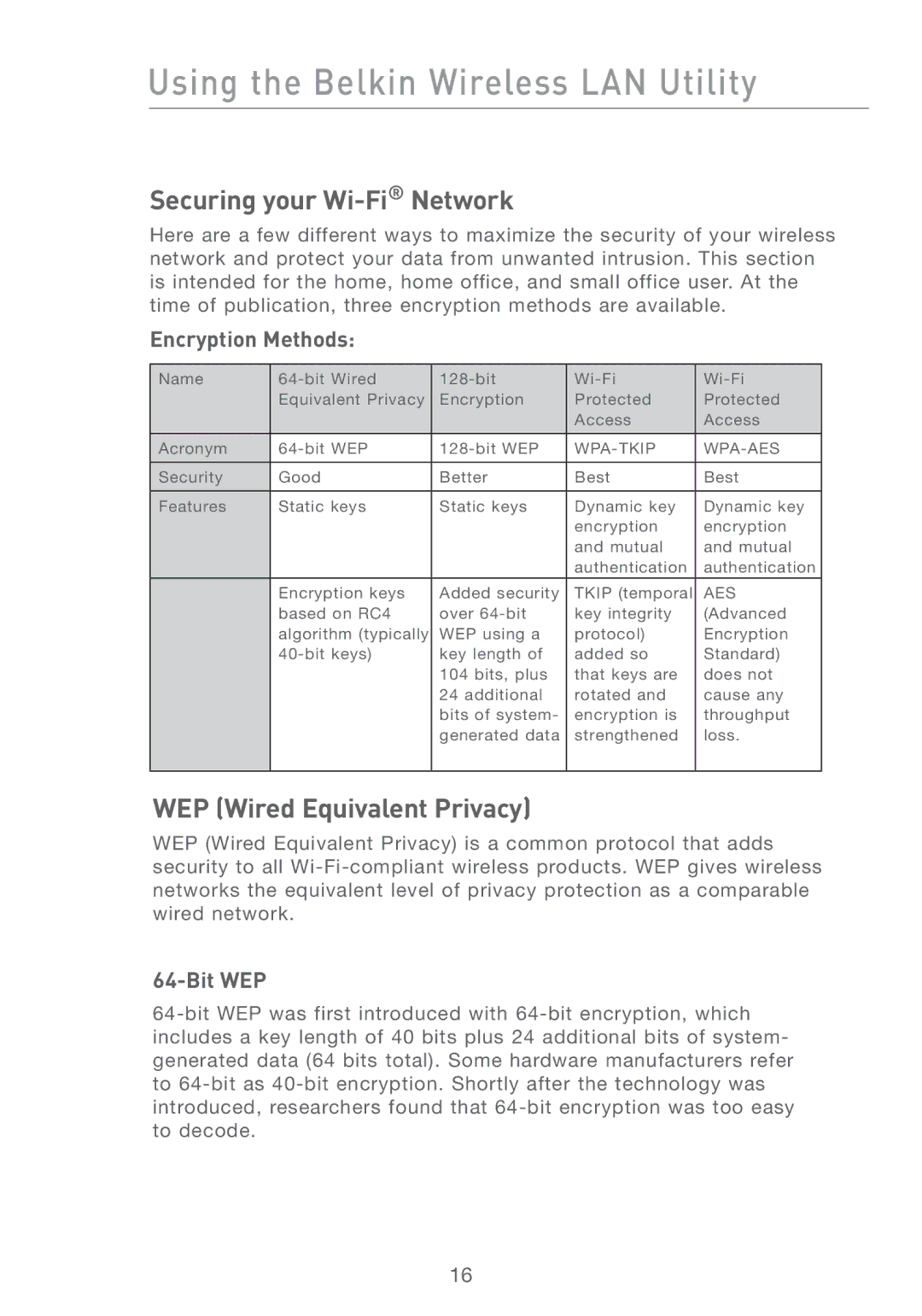
Using the Belkin Wireless LAN Utility
Securing your Wi-Fi® Network
Here are a few different ways to maximize the security of your wireless network and protect your data from unwanted intrusion. This section is intended for the home, home office, and small office user. At the time of publication, three encryption methods are available.
Encryption Methods:
Name | ||||
| Equivalent Privacy | Encryption | Protected | Protected |
|
|
| Access | Access |
|
|
|
|
|
Acronym |
|
| ||
|
|
|
|
|
Security | Good | Better | Best | Best |
|
|
|
|
|
Features | Static keys | Static keys | Dynamic key | Dynamic key |
|
|
| encryption | encryption |
|
|
| and mutual | and mutual |
|
|
| authentication | authentication |
| Encryption keys | Added security | TKIP (temporal | AES |
| based on RC4 | over | key integrity | (Advanced |
| algorithm (typically | WEP using a | protocol) | Encryption |
| key length of | added so | Standard) | |
|
| 104 bits, plus | that keys are | does not |
|
| 24 additional | rotated and | cause any |
|
| bits of system- | encryption is | throughput |
|
| generated data | strengthened | loss. |
|
|
|
|
|
WEP (Wired Equivalent Privacy)
WEP (Wired Equivalent Privacy) is a common protocol that adds security to all
64-Bit WEP
16
